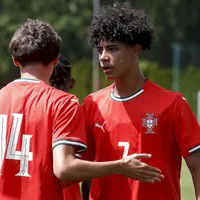
The caption of a graphic that Nike Soccer uploaded onto their social media channels recently read: Strong Alone. Unstoppable together. If anything, Australia’s history-making quarter-finals berth into the Women’s World Cup was the manifestation of exactly that.
While the Matildas cannot exactly boast high-profile players the likes of five-time World Player of the Year Marta, United States’ own superstar Megan Rapinoe or France’s star-attacker Eugenie Le Sommers, the Aussie line-up isn’t quite bereft of talent.
Australia goalkeeper Lydia Williams has been assured in between the sticks ever since replacing Melissa Barbieri in the starting line-up; Laura Alleway has proven to be lethal in the air; while Lisa De Vanna has proven to be a nightmare for opposition defenses.
But the key to the Matildas’ stunning rise is not simply the result of strength in depth in a roster that boasts a hybrid of youthful flair and experienced exuberance, but rather the cohesiveness of a side brimming with confidence, all that under the tenure of a youthful, yet tactical adept and organized coach.
Pitted against the might of the United States, Sweden and Nigeria, a positive result in the Group of Death seemed unlikely. But instead of being caught up in the hype surrounding the difficult task of qualifying from their group against such strong nations, the Matildas, let their work on the pitch do the talking. And the Aussies have proven to be worthy opponents.
In their opener against the United States, Alen Stajcic’s side gave the Americans a run for their money. Instead of sitting back and inviting pressure upon themselves, the Australians took a more proactive approach, and had it not been for the heroics of Hope Solo, and a Megan Rapinoe brace, things could easily have turned out differently. In the matches that followed for Australia, they comfortably defeated African champions Nigeria before holding the world’s fifth best side, Sweden, to book a place in the knockout stages.
Earlier, captain De Vanna had spoken of how far the Matildas had come in Canada, saying: “For them to see the outcome, take on the US, have a really good first-half, beat Nigeria, get a result against Sweden – they’re starting to get the feeling of what it’s like to be successful.”
Now, they can count Brazil to their list of high-profile scalps. Despite entering as favorites, Marta, who herself endured a vastly underwhelming performance, could hardly contain a lively green and gold outfit whose disciplined tactical approach saw the Aussies close down space in the midfield and halt Brazil’s attacking threat, and were able to absorb pressure and attack with intensity when it counted.
Kyah Simon’s goal in the 80th minute adequately demonstrates that. Australia managed to capitalize on some scrappy play out from the back as their midfielders pressed high up the pitch, denying the Brazilians time and space. And second, after the turnover, substitute Katrina Gorry played an incisive through ball for De Vanna, who’s parried shot found Simon at the back post.
For Brazil, there’s no going back. But for Australia, there’s so much potential going forward, so much so that Brazilian coach Vadao was left impressed by the Matildas’ performance.
“Australia were very efficient and clinical when it counted with the goal, congratulations to them.
“It came down to a simple little thing: losing the ball in midfield. We had controlled the match, especially in the second half. But we weren’t capable of finding an equalizer after conceding the goal.”
Simply put, the Matildas have the ability to play coolly through pressure and strike with pace, technical ability and ruthless counter-attacks that leave the best defenses reeling. Stajcic claimed after the match that his side are the best in the world when on the attack, and it’s hard to disagree with him.
Furthermore, the Matildas defense, under the leadership of Alleway, seems much more assured, poised and disciplined while the meteoric rise of 20-year-old full back Caitlin Foord has given Stajcic more flexibility in attack and defense.
But their success is hardly a coincidence. After the departure of Hesterine De Reus, Stajcic came onboard and almost immediately led the Matildas to an Asian Cup just last year. However, after four months of pre-tournament preparations, their disappointments in past World and Asian Cups can be forgotten now as the Aussies are reveling in their success by becoming the first Australian international soccer side to have won in a knockout stage match in the World Cup. And their feats now see a whole nation join the bandwagon. For the Matildas, this could be their year.
However, one must not get carried away. Indeed, Brazil may be behind them. Nevertheless, there are tougher opponents on the way.
As it stands though, Australia are two wins away from the World Cup final, an extraordinary feat for a nation in which its own women’s soccer league, the W-League, is a semi-professional competition. No doubt winning the nation’s first World Cup knockout game is arguably the biggest achievement in Australia’s not-so-rich footballing history, and it’s a huge achievement that will undoubtedly change the way the sport is perceived in Australia. The Matildas have gone from frightening the world’s elite to beating them, and no matter what transpires next, things will only get better from here.














